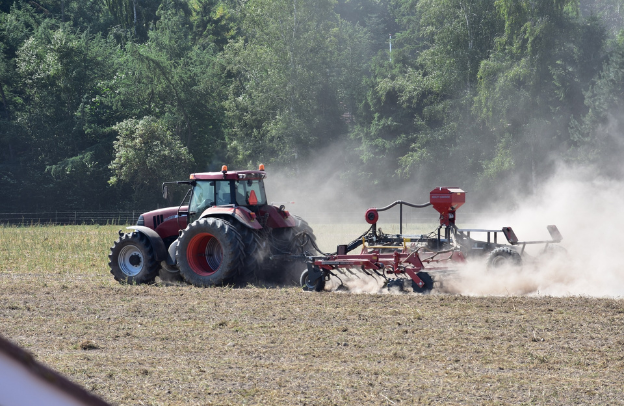Knowledge Exchange and Peer-to-Peer Learning for Cassava Farmers in Nigeria – A Guide for African Diaspora Entrepreneurs

As an African diaspora entrepreneur, the opportunity to thrive in Nigeria’s cassava farming industry is both exciting and full of promise. However, the path to success is not just about sowing seeds, it’s about sowing knowledge, building networks, and tapping into the rich resources of local expertise. If that is what you are interested in then you are in the right place.
Want to learn more about storytelling? Start by downloading the first chapter of The Storytelling Mastery.
By engaging in knowledge exchange and peer-to-peer learning, you can gain valuable insights into the nuances of cassava farming, from modern agricultural techniques to navigating the challenges of the global marketplace.
This guide will help you connect with the right resources and people, empowering you to not only grow your business but to contribute to the broader development of Nigeria’s agricultural landscape.
The Growing Opportunity for African Diaspora Entrepreneurs in Agriculture
Nigeria, home to over 230 million people, is the largest producer of cassava globally. The crop holds a unique place in the hearts and stomachs of many Africans, its starchy roots are used in a multitude of foods, from garri to fufu to starch, while its leaves are also a key source of nutrients.
Cassava is not just a crop; it is a cornerstone of the African economy, a crucial player in food security, and a driver of local industries. Yet, despite its potential, the sector still faces major challenges. This is where you, an entrepreneur from the African diaspora, can make a transformative impact.
In recent years, there has been a growing call for the African diaspora to invest in Africa’s agricultural future. The African Union (AU) estimates that Africa’s agricultural sector could reach $1 trillion by 2030 if given the proper investment, innovation, and support.
You, with your global exposure and understanding of international markets, are uniquely positioned to help make this vision a reality, if you are willing to learn, collaborate, and be part of a wider ecosystem of change.
The Cassava Industry: A Sector Ripe for Investment
As the world’s leading producer of cassava, Nigeria boasts a significant share of the global market. Yet, despite its production volume, the country’s cassava sector is far from fully optimized.
See also Processing Cassava for Increased Profit: A Guide for Nigerian Farmers
According to the International Fund for Agricultural Development (IFAD), Nigeria’s cassava farmers struggle with poor access to markets, outdated farming methods, low yields, and limited value-added products. These challenges offer opportunities for you as an entrepreneur to step in and transform the industry.
A 2022 report reveals that Nigeria was the global leader in the production of root crops like yam, cassava, and taro, as well as nuts such as kola and karite, and grains like sorghum.
With 61.2 million tons of yam and 60.8 million tons of cassava produced, Nigeria plays a pivotal role in the agricultural landscape.
According to The Observatory of Economic Complexity (OEC), Nigeria’s cassava exports in 2022 totaled $733,000, making it the 61st largest exporter of cassava worldwide.
Cassava ranked as the 214th most exported product from Nigeria that year, with key export destinations including the United Kingdom ($314,000), Canada ($131,000), the United States ($105,000), Spain ($59,300), and the Netherlands ($39,600).
Notably, Canada, the United States, and Turkey saw the fastest-growing demand for Nigerian cassava exports between 2021 and 2022, with increases of $44,000, $25,400, and $19,600, respectively. So, the Nigerian Cassava market has a huge margin for growth and expansion.
However, it’s important to remember that success is not just about capital investment, it’s about sustainable growth, skill development, and connecting with others who share your vision.
The African diaspora community holds a wealth of knowledge that, if harnessed, can change the future of cassava farming. This is where the power of knowledge exchange and peer-to-peer learning comes into play.
The Importance of Knowledge Exchange in Agriculture
One of the greatest challenges in African agriculture is the lack of access to modern farming techniques and technology. As a diaspora entrepreneur, you have the opportunity to be part of a movement that fosters knowledge sharing, both between seasoned farmers and newcomers to the industry.
But knowledge exchange is not just about learning new techniques, it’s about creating a culture of collaboration, where the exchange of ideas leads to tangible progress.
See also The Economic Value of Cassava Farming in Nigeria: Opportunities and Challenges
The role of African diaspora networks in this knowledge-sharing process is crucial. According to a 2023 report by the African Development Bank, the African diaspora has sent billions of dollars in remittances back to Africa annually, but much of this capital remains untapped in terms of agricultural investment.
Instead of merely sending money back home, diaspora entrepreneurs can become drivers of change by engaging directly with farmers and agricultural businesses in Africa.
Building Sustainable and Profitable Cassava Farming Businesses
If you are thinking about entering Nigeria’s cassava market, you may be wondering what makes a successful farming business. It’s about understanding the intersection of modern farming techniques, market demand, and sustainable growth. Now, here are some key strategies for success:
- Adopt Modern Farming Practices:
Nigeria’s cassava farmers are still using outdated farming methods that limit yield and efficiency. Investing in the adoption of high-yield cassava varieties, mechanization, and better soil management practices will improve productivity.
Collaboration with AgriTech startups that offer technology solutions such as digital soil analysis, crop management, and automated processing can increase yield while reducing operational costs.
- Add Value Beyond the Root:
While cassava is widely used for food, there is significant untapped potential in value-added products. Diversifying your operations by processing cassava into flour, starch, or even biofuel can unlock new revenue streams.
The Nigerian government offers incentives for agribusinesses involved in food processing, which can help you mitigate initial startup costs.
- Strengthening Market Linkages:
One of the key challenges faced by cassava farmers is poor access to markets. Building reliable supply chains for both raw cassava and processed products is critical.
By tapping into digital platforms that connect farmers directly to markets and buyers—both local and international—you can bridge the gap between rural farmers and global consumers.
E-commerce platforms and mobile apps designed for the agricultural sector can help you navigate Nigeria’s complex logistics and distribution challenges.
The Power of Peer-to-Peer Learning and Mentorship
Perhaps one of the most valuable assets you can bring to the table as an African diaspora entrepreneur is your global perspective. But it’s also essential to recognize the wealth of knowledge already present within local communities in Nigeria.
Local farmers, with years of experience, have valuable insights into the local climate, soil, and agricultural practices. However, many of these farmers lack technical knowledge or access to markets that could help them thrive.
This is where peer-to-peer learning and mentorship come in. By engaging with experienced cassava farmers and entrepreneurs, you can both teach and learn. In many rural Nigerian communities, informal networks of farmers and traders have existed for generations, and these networks can be harnessed to share expertise and exchange ideas.
You can connect these farmers to modern techniques, digital tools, and larger markets, while also learning from their experience on the ground.
Mentorship programs, such as those run by the African Agribusiness Incubator Network (AAIN), provide platforms for established entrepreneurs to guide newcomers.
By joining such networks, you can accelerate your business growth while fostering collaboration and community development.
The Power of Storytelling: Building a Brand for Your Agribusiness
Once you have established your business, it’s time to connect with your customers—and storytelling can be your most powerful tool. Africans are proud of their heritage, and consumers both locally and globally are increasingly drawn to brands with authentic, relatable stories.
As an African diaspora entrepreneur, you can leverage your unique experience to tell a compelling story about your brand and your products.
Imagine the story of a cassava farmer in rural Nigeria who, with your mentorship, has learned to increase his yield using sustainable farming practices and is now supplying cassava flour to international markets.
You might also like Managing Water Resources in Cassava Farming: Tips for Small-Scale Farmers in Nigeria
This is a story of transformation, and it is one that will resonate with your audience, whether they are consumers, investors, or fellow entrepreneurs.
Digital storytelling through social media platforms—Instagram, TikTok, YouTube—gives you the opportunity to share your journey, showcase your products, and build a loyal customer base. A compelling story can elevate your agribusiness, making it stand out in a crowded market while driving customer loyalty.
The Role of Continuous Learning and Self-Improvement
To succeed in any business, but particularly in agribusiness, continuous learning is essential. The world of agriculture is rapidly evolving with new technologies, market dynamics, and consumer preferences. As an entrepreneur, you must commit to ongoing education and personal growth to stay ahead of the curve.
You can invest in courses on topics such as sustainable farming, agribusiness management, and digital marketing. Platforms like Coursera and EdX or AClasses Academy offer free or affordable courses that can enhance your skills.
Joining industry conferences and networking events, such as the annual African Agri-Business Forum, can also provide valuable insights into the latest trends and opportunities in the agribusiness space.
Additionally, as an entrepreneur, you must be open to feedback and collaboration. No one has all the answers, and it’s through working with others, learning from their successes and failures, and staying open-minded that you can ensure long-term success.
The Future: A Call to Action
The potential for cassava farming in Nigeria is vast, but the opportunity is not just about capitalizing on an untapped market. It is about building a sustainable, inclusive, and thriving ecosystem where knowledge is shared, ideas are nurtured, and collaboration thrives.
For you as an African diaspora entrepreneur, this is more than just a business opportunity—it is a chance to contribute to the development of Africa and create a lasting legacy for future generations.
By investing in Nigeria’s cassava sector, adopting modern farming techniques, and embracing the power of peer-to-peer learning and mentorship, you can help transform the agribusiness landscape in Nigeria.
The diaspora community’s involvement in Africa’s agricultural future is not just desirable, it is essential. Together, we can drive change, create jobs, and ultimately ensure that Africa’s agricultural sector can feed not only its own population but the world. Your journey begins with learning, sharing, and growing. It begins with collaboration.
Want to learn more about storytelling? Start by downloading the first chapter of The Storytelling Mastery.




